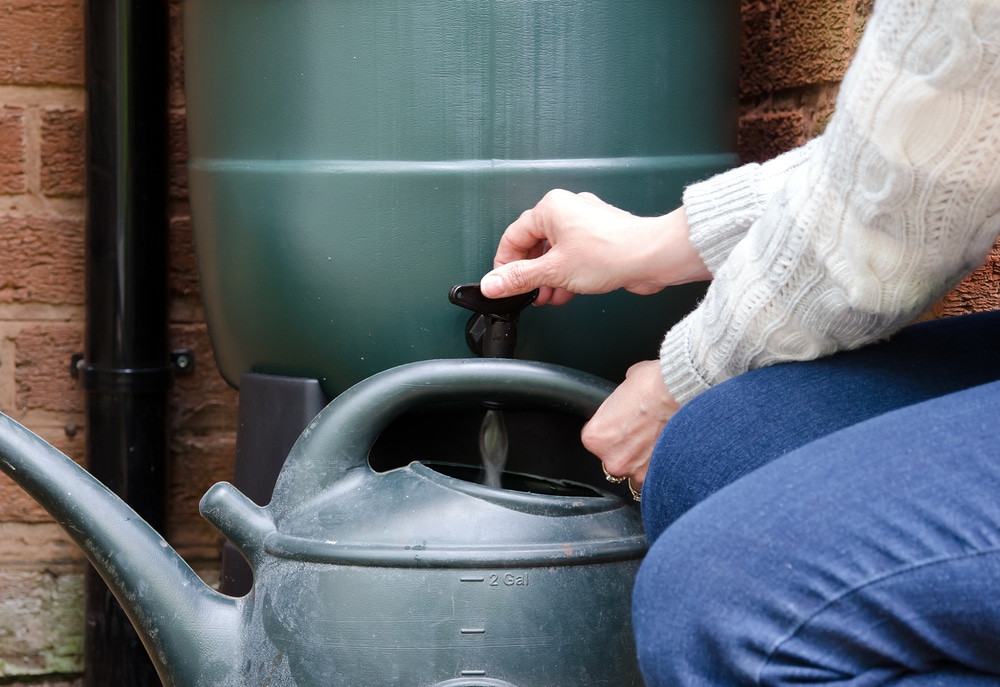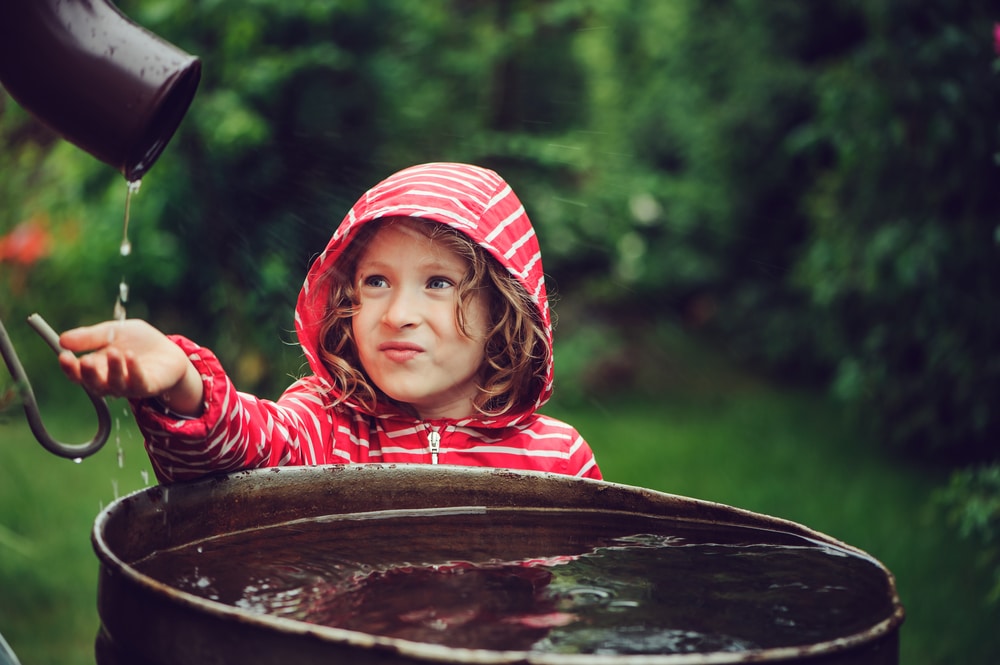There are many benefits of rain barrels, they capture water from your home’s roof and store it so you can use it later. Most people use rain barrel water to water their plants or yards. Rainwater from your roof may collect pesticides and contaminants, so humans or animals should never consume it.
Rain barrels have many benefits depending on where you live, your water needs, and how much water you use.
Rain Barrels Can Reduce Your Water Bill
Many people grow gardens to access fresh foods and reduce food costs. However, the increased cost of water often negates many of these benefits. Rain barrels are an excellent way to offset some of these costs.
Rain barrels can help reduce your monthly water bill, especially if you have lots of plants to water.
Rain Barrels Can Reduce Runoff
Rain barrels are especially beneficial in dry regions. Counterintuitively, rainwater soaks into dry surfaces much slower than damp surfaces. In dry regions, lots of rainwater never gets adequately absorbed into the ground, so yards are not watered well, even in the rain.
You can reduce runoff into storm drains and sewers by capturing the rain and releasing it slowly back onto your yard. Watering your yard with rainwater can help you make the most of each storm and hydrate your lawn as much as possible.
Rain Barrels Can Reduce Erosion and Flooding
If your yard is prone to flooding, rain barrels can help mitigate some of the water pooling in your yard. Rain barrels can catch some of the water from your downspout, preventing it from entering your yard.
Mitigating flooding is especially beneficial for chronically wet lawns. Lawns that are wet too often tend to have many complications, such as fungal growth and pests, and can even damage the foundation of your house.
The Drawbacks of Rain Barrels
Many places regulate how much water you can collect in rain barrels and other water collection tools because it can impact the natural ecosystem. Collecting water prevents it from entering streams, rivers, and local lakes and can have dangerous consequences if regulations are not followed.
Where Are Rain Barrels Allowed?
In the US, only Colorado and Utah heavily regulate the use of rain barrels. If you live anywhere else in the lower 48 states, rain collection is usually loosely regulated, if at all. Check with your local water company if you are unsure about the legality of rain barrels in your area.
Are Rain Barrels Worth It?
Before choosing to add a rain barrel to your landscaping, there are a few questions you should ask yourself:
Will I Use the Water From a Rain Barrel?
Rain barrels need to be emptied regularly, so you should have a garden or yard that you need to water before purchasing a rain barrel.
Am I Prepared to Maintain a Rain Barrel?
Rain barrels should be drained and cleaned regularly to prevent mosquitos and other contaminants.
How Long Can I Store Rain Water?
In most cases, rainwater can be stored for about a week. Leaving rainwater longer than one week can cause algae growth, which is bad for your garden. Additionally, if you live in a city, your rain barrel water may absorb pollutants from the air if it is left out too long.
Rain barrels left uncovered are also breeding grounds for mosquitos. Female mosquitos often lay eggs in stagnant water. Mosquitos breeding in water may carry diseases like West Nile Virus.
How To Store Rainwater Safely
You can take several steps to keep your water clean and prevent some potential dangers of rainwater. You should always use a rain barrel that has a lid you can use when the rain stops. The cover should fit snugly to prevent any unwanted pests from getting in.
Additionally, you can install a filter in your rain barrel. The filter on your rain barrel can either sit on the drainpipe of your home or the lid of your rain barrel. Make sure that filters are clear of debris before each storm.
The best way to keep your rain barrel algae and mosquito-free is to drain and clean it regularly. Do not store water for longer than a week, if possible, and clean the rain barrel tank with a mild bleach solution each time you empty it.
Conclusion
Rain barrels can save money on your water bill and reduce erosion and flooding in dry areas. However, you should be aware that some areas have restrictions on rain barrels, so be sure to check out your local regulations before embarking on your rainwater collecting venture.
You may also be interested in learning whether you can mow your lawn in light rain.

